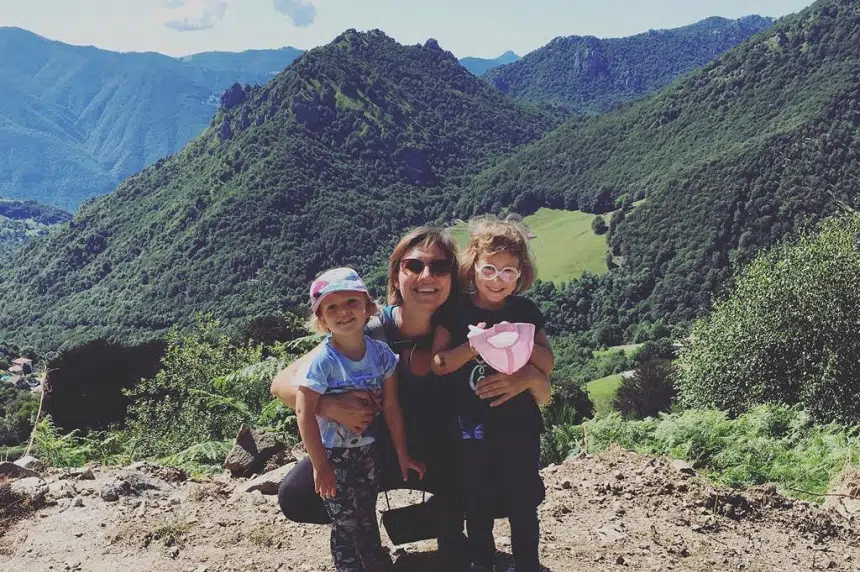As Holly Wiens sat down on Saturday to mark some assignments, a news report caught her eye.
Like many headlines around the world, it was about coronavirus.
But this had more meaning to the Saskatchewan woman living in the centre of the European epidemic on the Italian-Swiss border.
“I saw that Lombardy was about to shut down,” she said by phone on Tuesday.
“I immediately went into action, ran around my house like a madwoman and started packing.”
Wiens, from the Saskatoon area, made her home near Como Lake in Lombardy, Italy years ago and started a family there.
She works as a teacher at an international school on the Swiss side of the border, located six kilometres from her Italian community. Her two children commute with her and attend the school.
But after the Italian government announced they would quarantine the northern region, Wiens wanted to make sure she got her children across the border so they could keep going to classes.
After she saw the news report on Saturday, it was a race to beat the border closure.
“We got there at about 11:45 p.m. because I wanted to get through the border before midnight,” she told 650 CKOM from a friend’s home in Switzerland.
“I didn’t want us to be stuck in Italy.”
For the last several weeks Wiens and her family have been living the reality of the COVID-19 crisis.
The country is reporting more than 10,000 cases of the respiratory virus, where 631 people have died.
Businesses have shut down voluntarily and people in her community united in saying they would stay home to prevent any potential transmission.
“There’s a feeling of fear, but also one of solidarity,” she said of the community.
She noted the transition from regular routine to quarantines happened quickly in the area.
“Three weeks ago it wasn’t worrying … life went on as normal,” she said.
“Now from one week to the next, it’s been a total change of lifestyle.”
She said there are concerns around what governments in the area will do next to try and stem the tide of the virus, which includes her area of Switzerland.
The economy in the area relies on the regular crossing of nearly 70,000 Italian workers, so the border was partially re-opened to limit the financial impact in the region. But now there’s talk of isolating the Italian-speaking Ticino province to prevent infection in other parts of Switzerland.
Wiens said if that ends up happening, she will return to her own community in Italy.
In the meantime, she’s preparing to teach her students through distance learning over the next several weeks as health officials try to get a grasp on the outbreak.
So far, no-one she knows has gotten sick and her family is ensuring that hands are washed regularly and they’re limiting social contact.
“There’s a general sense of … not really knowing where this is going to go,” she said.
“It feels kind of uncontrollable.”







